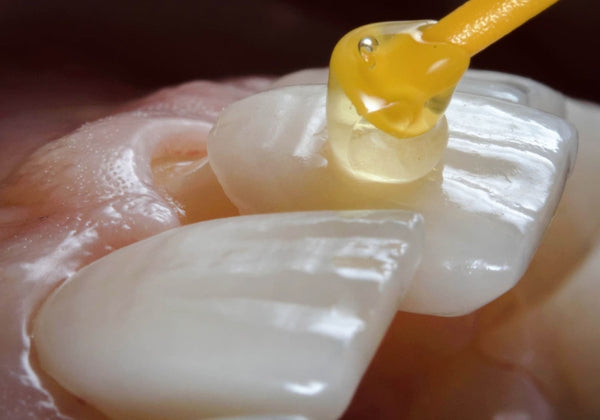
Why is Dental Cement Important?
Introduction
Dental cement plays a vital role in the field of dentistry, serving as a crucial component in a wide range of dental procedures. From restorative dentistry to orthodontics and endodontics, dental cement is an essential material that contributes to the success and longevity of various treatments. In this blog, we will explore the importance of dental cement and its significance in maintaining dental health.
Understanding Dental Cement
Dental cement can be defined as a versatile material used in dentistry to bond or secure various dental restorations and other things. Its primary functions include providing structural support, sealing, and improving the overall aesthetics of dental work. There are several types of dental cement utilized in dentistry, each serving a specific purpose based on the treatment needs and desired outcomes.
Importance of Dental Cement in Restorative Dentistry
In the field of restorative dentistry, the significance of dental cement is vital in ensuring the success of dental fillings and bonding restorations. When filling cavities, dental cement is used to tightly seal the gap and minimize the chances of further decay. Additionally, it aids in bonding restorations such as dental veneers or inlays/on lays, providing a secure and durable attachment to the natural tooth structure. Common dental procedures that involve the use of dental cement include dental fillings, dental crowns, and dental bridges.

Importance of Dental Cement in Orthodontics
Orthodontic treatments, such as braces and retainers, heavily rely on the use of dental cement. Dental cement is essential in securing the brackets and wires of braces onto the teeth, ensuring proper alignment and tooth movement. It also helps in anchoring dental orthodontic appliances, such as headgear or expanders, providing stability and support throughout the treatment process.
Importance of Dental Cement in Endodontics
In dental endodontics, a crucial component is dental cement in sealing root canals after the removal of infected or damaged pulp. By creating a tight seal, dental cement prevents further infection and recontamination. Moreover, it contributes to the success of root canal treatments by providing stability to the filling material used to restore the tooth's strength and function.
Importance of Dental Cement in Prosthodontics
Prosthodontics focuses on the restoration or replacement of missing teeth and the essential function of dental cement in securing both removable and fixed prosthetic devices. For removable dentures or partials, dental cement provides stability, preventing them from slipping or moving within the mouth. In the case of fixed prosthetic devices like dental implants or bridges, dental cement ensures a strong and reliable bond between the dental restoration and the natural tooth or implant abutment.
Advantages of Dental Cement
Dental cement is a crucial material used in various dental procedures, offering several distinct advantages for both dental professionals and patients. Here are some key advantages of dental cement:
Restorative Strength: Dental cement is known for its exceptional therapeutic strength. It can be used to repair and restore damaged teeth, whether through dental fillings, dental crowns, bridges, or other vital applications. Dental cement provides stability and longevity to these restorations, ensuring they withstand the pressures of daily chewing and biting.
Versatility: Dental cement comes in various types and formulations, making it versatile for a wide range of dental applications. From traditional glass ionomer cement to resin-based materials, there are options suitable for bonding, sealing, and cementing restorations, as well as luting prosthetic devices.
Adhesion: Dental cement provides excellent adhesion to both tooth structures and dental materials such as porcelain, ceramics, and metals. This strong bond helps secure restorations in place, reducing the risk of dislodgement and improving their longevity.
Aesthetic Appeal: Some dental cements, particularly resin-based ones, offer excellent aesthetics. They can be color-matched to the patient's natural teeth, ensuring that restorations blend seamlessly with the surrounding dentition. This is especially important for visible areas in the mouth.
Reduced Post-Operative Sensitivity: Dental cement can help reduce post-operative sensitivity by sealing the dentin and protecting the tooth's nerve from temperature and pressure changes. This is particularly valuable in restorative and crown procedures. Properly placed and maintained dental cement restorations can last for many years. This ensures that patients can enjoy the benefits of their dental treatments over an extended period, reducing the need for frequent replacements.
Ease of Application: Dental cement is relatively easy to use and can be applied quickly in dental procedures, saving time for both the dentist and the patient. Its straightforward application process contributes to the efficiency of dental treatments.
Cost-Effective: Dental cement is generally cost-effective compared to some other dental materials. This affordability can be advantageous for both dental professionals and patients, especially when considering the durability and longevity of the restorations it provides.
In summary, dental cement is a versatile and essential material in dentistry, offering advantages. These advantages contribute to successful dental procedures and the overall well-being of patients.

Proper Use and Application
Dental cement is essential in various dental procedures, ranging from simple restorations to complex dental prosthodontic treatments. Its effectiveness largely depends on the correct use and precise application by dental professionals. In this discussion, we emphasize the significance of professional expertise in handling dental cement and provide essential tips and guidelines for its proper use and application.
The Importance of Professional Expertise in Using Dental Cement
The importance of professional expertise in using dental cement cannot be overstated. Dental cement is a critical component in various dental procedures, and its correct application requires a high level of skill, precision, and knowledge. Here are some key reasons highlighting the significance of professional expertise:
Skill and Precision: Dental cement application requires a high degree of skill and precision. Dental professionals, including dentists and dental assistants, undergo extensive training to develop the skills and expertise needed to handle dental cement effectively. This training ensures that the cement is applied accurately, minimizing the risk of errors or complications.
Customization: Dental procedures are highly individualized, and the choice of dental cement may vary depending on the patient's specific needs and the type of restoration being performed. Professional expertise enables clinicians to select the most appropriate cement type, taking into account factors such as the patient's oral health, the restoration's location, and the materials being used.
Patient Safety: Dental professionals prioritize patient safety and well-being. They are equipped to assess each patient's medical history, allergies, and sensitivities to select a dental cement that is biocompatible and unlikely to cause adverse reactions. This thorough evaluation minimizes the risk of complications and ensures the patient's comfort during and after the procedure.
Adherence to Standards: Dental professionals adhere to established industry standards and guidelines when working with dental cement. These standards encompass factors like mixing ratios, working time, and curing processes. Following these standards is crucial for achieving optimal results and maintaining the longevity of dental restorations.

Tips and Guidelines for the Proper Use and Application of Dental Cement
There are some essential tips and guidelines for the proper use and application of dental cement. By following these tips and guidelines, dental professionals can ensure the proper use and application of dental cement, leading to successful dental procedures and satisfied patients.
Mixing Ratios: Follow the manufacturer's instructions meticulously when mixing dental cement. Use the recommended proportions of powder and liquid to achieve the desired consistency and working time. Dental cement often has a finite working time before it sets. Ensure that the cement is applied within this timeframe to guarantee a secure bond. Conversely, allow sufficient curing time for the cement to set fully.
Avoid Air Bubbles: Take care to eliminate air bubbles during the cementation process. Air bubbles can compromise the seal and stability of the restoration. Use appropriate instruments to remove them.
Proper Placement: Position the restoration accurately and secure it firmly in place. Ensure that there is adequate pressure to achieve a snug fit while preventing excess cement from extruding. Properly prepare the tooth surface or restoration for cementation. This may involve cleaning, etching, and ensuring a dry environment for optimal bonding.
Excess Cement Removal: After placement, promptly remove any excess cement. Residual cement left on the tooth surface or restoration can lead to irritation, inflammation, or compromised aesthetics.
Post-Operative Instructions: Provide patients with clear post-operative care instructions, including guidance on oral hygiene, dietary restrictions, and what to expect after the procedure. Schedule follow-up appointments to monitor the restoration's integrity and address any concerns or issues promptly.
Continuing Education: Dental professionals should engage in ongoing education and training to stay updated on the latest advancements in dental cement technology and techniques.
Dental cement application requires expert technique, attention to detail, and instructions. To ensure the success of surgery, dental professionals use the right cement, adhere to strict procedures, and place a high priority on patient comfort.
Conclusion
Dental cement is important in many different parts of dentistry, ranging from therapeutic procedures to orthodontics, endodontics, and prosthodontics. Its importance lies in its ability to provide stability, support, and aesthetics in dental treatments. Understanding the significance of dental cement helps us appreciate its role in maintaining oral health and overall well-being. So, the next time you visit your dentist, take a moment to acknowledge that dental cement is very important in your dental care journey.

